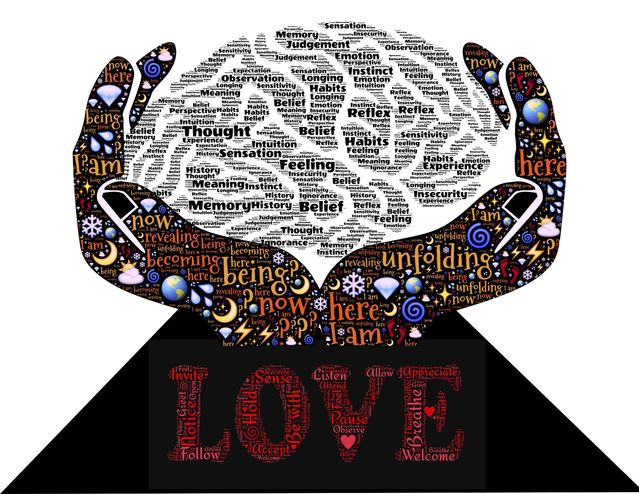Ethics and Morality
"The Paradox of Our Time" or a Timeless Paradox?
Can kindness and humility change the world?
Posted January 25, 2019 Reviewed by Ekua Hagan
The Paradox of Our Time
Widely circulated and inaccurately credited to numerous authors over the years, “The Paradox of Our Time” still continues to provide inspiration and an opportunity for reflection.
The paradox of our time in history is that
we have taller buildings but shorter tempers;
wider freeways, but narrower viewpoints.
We spend more, but have less;
we buy more but enjoy less.We have bigger houses and smaller families,
more conveniences, but less time;
we have more degrees, but less sense;
more knowledge, but less judgement;
more experts, yet more problems,
more medicine, but less wellness.We drink too much, smoke too much,
spend too recklessly, laugh too little,
drive too fast, get too angry,
stay up too late, get up too tired,
read too little, watch TV too much, and pray too seldom.We have multiplied our possessions, but reduced our values.
We talk too much, love too seldom, and hate too often.
We've learned how to make a living, but not a life,
we've added years to life not life to years.We've been all the way to the moon and back, but have
trouble crossing the street to meet a new neighbor.
We conquered outer space but not inner space.
We've done larger things, but not better things.We've cleaned up the air, but polluted the soul.
We've conquered the atom, but not our prejudice.
We write more, but learn less.
We plan more, but accomplish less.
We've learned to rush, but not to wait.We build more computers to hold more information to
produce more copies than ever, but we communicate
less and less.These are the times of fast foods and slow digestion;
big men and small character;
steep profits and shallow relationships.These are the days of two incomes but more divorce,
fancier houses but broken homes.These are days of quick trips, disposable diapers,
throw-away morality, one-night stands,
overweight bodies, and pills that do everything
from cheer to quiet, to kill.It is a time when there is much in the show window and
nothing in the stockroom. A time when technology
can bring this letter to you, and a time when you can choose
either to share this insight, or to just hit delete.Remember, spend some time with your loved ones,
because they are not going to be around forever.Remember, say a kind word to someone who looks up
to you in awe, because that little person soon
will grow up and leave your side.Remember, to give a warm hug to the one next to you,
because that is the only treasure you can give with
your heart and it doesn't cost a cent.Remember, to say "I love you" to your partner and
your loved ones, but most of all mean it.
A kiss and an embrace will mend hurt when it comes
from deep inside of you.Give time to Love, give time to speak, give time to
share the precious thoughts in your mind.
Said to have been penned by comedian George Carlin, the Dalai Lama, an unnamed Columbine High School student, and even to the elusive Anonymous, the true author of this essay is Dr. Bob Moorehead, a former pastor of Seattle’s Overlake Christian Church. This essay appears as “The Paradox of Our Age” in Words Aptly Spoken, Dr. Moorehead’s 1995 collection of prayers, homilies, and monologues.
Attribution aside, "The Paradox of Our Time" has sustained its thought-proving power over the years. It’s no wonder in 1999 it recirculated, but this time as being written by an unnamed student who witnessed the horror of the Columbine shootings. These thoughts and words made sense to Americans deeply searching for answers in the wake of this inexplicable act of violence.
A Timeless Paradox
Decades have passed since "The Paradox of Our Time" originated, and yet its meaning is still as relevant as ever. The essay encourages reflection and action in these times where we are bombarded hourly by breaking news stories of acts of violent and tragic events. In my blog post, "SOS: Where Is Kindness, Caring, Compassion, and Empathy?" I ask others to join the #Icare movement to promote action and positive change.
#Icare Movement
The #Icare movement is based on the premise of Copycat behavior. Why is there so much publicity on acts of crime and not acts of kindness, when it’s this publicity and attention that drive the Copycats?
“The copycat phenomenon is real,” Andre Simons of the FBI’s Behavioral Analysis Unit said at the time. “As more and more notable and tragic events occur, we think we’re seeing more compromised, marginalized individuals who are seeking inspiration from those past attacks.”

Can you imagine a kinder, more compassionate community? Do you think it’s possible to drive change? I challenge everyone to share the positive, the uplifting, the random acts of kindness you experience. Share these acts and stories of kindness and positivity with news outlets and various social media networks.
We can make a difference in the world. Will you join me?
There is a way!
Copyright© Diane Roberts Stoler, Ed.D. January 2019


